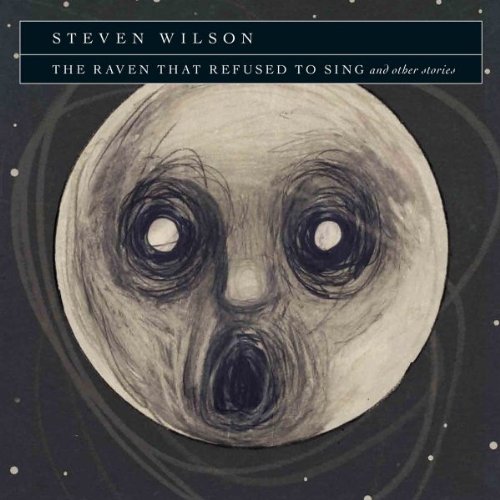All Nonfiction
- Bullying
- Books
- Academic
- Author Interviews
- Celebrity interviews
- College Articles
- College Essays
- Educator of the Year
- Heroes
- Interviews
- Memoir
- Personal Experience
- Sports
- Travel & Culture
All Opinions
- Bullying
- Current Events / Politics
- Discrimination
- Drugs / Alcohol / Smoking
- Entertainment / Celebrities
- Environment
- Love / Relationships
- Movies / Music / TV
- Pop Culture / Trends
- School / College
- Social Issues / Civics
- Spirituality / Religion
- Sports / Hobbies
All Hot Topics
- Bullying
- Community Service
- Environment
- Health
- Letters to the Editor
- Pride & Prejudice
- What Matters
- Back
Summer Guide
- Program Links
- Program Reviews
- Back
College Guide
- College Links
- College Reviews
- College Essays
- College Articles
- Back
The Raven That Refused To Sing (and other stories) by Steven Wilson
Album Review of 'The Raven That Refused To Sing' by Steven Wilson
While most of today's progressive rock artists are greatly influenced by 70s prog giants, but never create anything that sounds as if it came from the 70s, Steven Wilson did. And he did it good, with 'The Raven That Refused to Sing (and other stories)'. Just like every other album Wilson has put out, the uniqueness is enough to get you hooked.
The record starts out with a twelve-minute track titled 'Luminol'. Almost half way through the song has no vocals from anyone, causing you to begin to think it's an instrumental track.As far as the sound goes, it sticks to its genre, but throws in some jazz. With funky bass lines and rare guitar chords, you'd easily consider this a jazz track but prog in the 70s promoted a tool that was used by big names such as 'King Crimson' and 'Gentle Giant'. The keyed machine was called the Mellotron. When the Mellotron kicks in, one thing is thought by music nerds such as myself. Prog.
In terms of Wilson's fans, many appreciate his ability to express his poetic skills in his music. His fan base even consists of people who grew up in eras (mainly the 70s) where prog was more common, and respect Steven for resurrecting the dinosaur. This encouraged young artists to cross over to Prog, forming solo projects and bands that performed the glorious genre. The number of such projects has increased highly, mostly having to do with how much we've advanced technologically. But who knows, maybe Wilson had a huge part in it all.
Out of all songs within the record, one is perhaps the easiest to compare to another artist from the genesis of prog. This is the second track, and is called 'Drive Home'. This song shares qualities mostly with none other than Pink Floyd. It's deep and unique title and slow paced tune make no question that this song is Pink Floyd-influenced. It might have something to do with the fact that Alan Parsons engineered the record, and engineered Pink Floyd's 'Dark Side of the Moon'. The record being based off of ghost stories that Steven wrote, it has a rather dark feel to it. And what most consider, quite sad.
Diving into the feel of the record a little more, the story combined with the cover art concealing it, is most thought to be dark. But what only some can see is the light of it all. it gives off somewhat of a feeling you'd get from a good fairytale, similar to what the progressive rock group, Genesis shot for and succeeded in the 70s. This caused many progheads to fall in love with the children's-story-like aspect and the record as a whole. The track produces such delightful feelings, despite its spooky intentions. The song is called 'The Watchmaker'. The song contains folk-carried instruments such as acoustic guitar, flute, grand piano, and other instruments. The song sounds rather like a slowed down Jethro still track, considering its use of the flute and acoustic guitar.
Now for my personal favorite track on the record. The title track. The Raven That Refused To Sing. Perhaps the most sad in terms of the story behind the sound, but the most beautiful nonetheless. About half way into the song, fades in an addicting tune produced by lead guitar and piano. This, as you might of guessed, is a big part of why the song is my favorite, bit it isn't the biggest. I primarily love the such creative story. It is the perfect ending, to what is in my opinion, a perfect record.
Similar Articles
JOIN THE DISCUSSION
This article has 2 comments.


247 articles 0 photos 57 comments
Favorite Quote:
Take me As I Am - James Labrie of Dream Theater